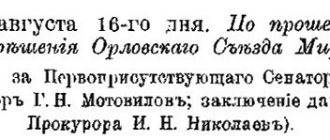Teaching at an educational institution is a difficult and nervous job that requires good endurance. Not all teachers cope with their tasks properly. In case of unethical and unprofessional behavior, the teacher becomes liable for insulting the student. If a teacher humiliates a child's dignity, parents must take immediate action. Otherwise, the student risks receiving psychological trauma from the teacher, which will affect his future life.
Does a teacher have the right to insult and humiliate a student?
The task of each teacher is to provide students with comfortable learning conditions and provide the necessary knowledge.
However, at school, children may face humiliation, coming not only from their peers, but also from an adult. Even if a minor does not behave properly, the teacher does not have the right to stoop to insults, much less use physical force. The teacher has the authority to call parents to school or contact the authorities to influence the student's behavior. You can also have a disciplinary conversation with the student himself in a polite and respectful manner. However, insults are unacceptable, no matter what the situation.
If a minor is humiliated by an adult, parents must intervene immediately. You should definitely take action when this happens regularly. It is impossible not to react to the teacher’s unacceptable behavior, because a teenager may not only stop studying normally, but also lose self-confidence.
Legal side of the aspect
Even without resorting to reading the laws, any sane person understands that a teacher should under no circumstances humiliate his students or put pressure on them. However, our legislation spells out in detail what rights a child has while at school.
This issue is regulated by the Federal Law “On Education in the Russian Federation”. Namely, Article 34 states that all participants in the educational process must respect the dignity of the student. The article also implies that the child must be protected from any form of violence: psychological, physical, emotional, and so on. The student should not be subjected to insults and has the right to protection of life and health.
Another article of the education law directly talks about the responsibilities of a teacher. Every teacher is obliged to adhere to moral, ethical, and most importantly – legal norms.
In addition, the teacher is obliged to show respect to students, not to insult their honor and dignity, to comply with all rules of professional ethics, and also to ensure that students do not use any methods of humiliation towards each other. Accordingly, there can be no talk of any verbal, much less corporal, punishment.
If a student has behaved incorrectly, violated any rule of the educational institution, is dishonest in the educational process, or does not satisfy the teacher’s requirements in some way, the teacher has the right to invite the student’s parents to school to conduct a meeting in their presence, as well as in the presence of the director. schools, educational conversation.
The best decision on the part of the teacher would be to explain the situation to the parents and give them the opportunity to independently influence the child. In any case, the teacher should not show any “independent activity” in this matter.
What can be punished for insult:
Disciplinary action. You should contact the school administration. The teacher may be reprimanded and even fired.
Punishment of the perpetrator under the article for insult to personality. An individual must pay a fine of up to three thousand rubles, and an official will be fined up to 30,000 rubles.
Compensation for moral damage. To do this, the parent must draw up a statement of claim and submit a completed request for compensation form to the court. Only in court can you ask for compensation from the teacher and from the school.
If the teacher is not punished under the article, his behavior will change. Because he is aware of what insulting students can lead to and is unlikely to want to sue.
We are writing a complaint
A complaint against a teacher is written to the director. This is the very first step in protecting your child. Before contacting the appropriate authorities, notify the school principal about the teacher’s misconduct.
In your appeal, list in detail all the facts indicating a violation of the child’s rights to respect for honor and dignity. And demand that action be taken against the teacher.
Just be careful: the teacher can present the situation in such a way that your offspring turns out to be a slanderer. And your appeal will be nothing more than a slander against the teacher.
The ideal option is a collective complaint against the teacher. The more parents sign it, the higher the likelihood that the unscrupulous teacher will be held accountable.
Thirty days are given for the trial. During this time, the director conducts an internal investigation and gives parents a written response.
The appeal is drawn up in two copies. One is registered and submitted to the director for consideration, and on the second a note is made about the incoming complaint number with the date of its filing. Who should do this? Of course, the school secretary.
What should parents do?
If a parent hears a complaint from a child about a teacher, it is worthwhile to immediately understand the situation. First of all, you need to find out whether this is slander. Because a minor can cheat, for example, in order not to go to class or not to do homework. However, if the student is not lying, then he should report to school immediately.
Important! You should first talk to the teacher and try to resolve the issue peacefully. You should explain to the teacher that the child is not used to such treatment.
It is quite possible that the teacher will realize his mistake and stop behaving inappropriately. However, if this does not happen, then all that remains is to go to higher authorities.
It is recommended to first interview the child about what happened and find out all the details. You should also talk to other students who have witnessed inappropriate behavior from a teacher or have been bullied themselves. If a parent is sure that humiliating children is not new for a teacher, and he is not going to correct his behavior, then it is necessary to go to the prosecutor's office.
The statement should indicate the details of what happened, specify the date and time, as well as the location. It is worth writing down what unlawful actions the teacher committed, what words he used to humiliate the minor. It is not necessary to describe the story in detail, because when a criminal case is initiated, a survey will be conducted.
The prosecutor is obliged to take all measures to investigate the offense. As a rule, this takes no more than a month. Each party to the conflict must be interviewed. Next, the materials are sent to the court, and the issue is considered for 60 days. In most cases, one meeting is enough to solve the problem. The prosecutor, the minor's parents and the teacher must be present.
Based on the results of the meeting, the teacher may be held accountable or the administrative case may be terminated. The decision can be appealed within 10 days from the date of receipt of a copy of the decision. If the matter is serious, it is recommended to seek legal assistance to punish the culprit.
Confirmation of the fact of illegal actions of the teacher
To be able to prove the fact that a teacher is insulting a student, it is necessary to understand the situation in as much detail as possible:
- ask the child, check his story several times with different questions - if he gets confused, gets confused, reports contradictory information, then perhaps he is not telling the whole truth;
- talk with classmates, parents of other students - eyewitness accounts will help confirm the student’s claim that he was insulted;
If the situation repeats itself repeatedly, you can ask the child to record it on a phone or recorder, but under no circumstances provoke the teacher into aggression.
You can also keep copies of written requests from the administration of the educational institution to confirm attempts to resolve the issue before trial.
How to protect your child
It is the duty of every parent to protect their children, including from attacks by teachers. Of course, it is quite rare for a teacher to intentionally belittle a student. Most often, conflicts occur with other schoolchildren for various reasons. But the parent should not remain on the sidelines.
You need to understand the situation and understand who is to blame. If the student himself was the first to insult the teacher, then he needs to be explained that such behavior is unacceptable. When a teacher is at fault, you should talk to him and ask him not to humiliate children anymore.
When the issue cannot be resolved peacefully, all that remains is to turn to the law. And in Russia, and in Belarus, and in Ukraine, and in other countries, it is possible to hold a teacher accountable. Don't put it off because the situation could quickly get worse. At a minimum, the student will feel uncomfortable being at school, which will affect his performance. However, serious mental injuries may even occur due to the teacher's attacks, which will become a problem in the future.
Concept. What article is provided?
The honor and dignity of a minor citizen are protected by the same laws that apply to persons who have reached the age of eighteen.
Insulting a minor is considered to be: ridicule, unethical remarks, offensive comparisons, obscene statements, indecent gestures and proposals on the part of younger persons, peers or adults, committed during personal communication between the victim and the accused party, publicly or using the Internet or mobile communications.
The punishment for insulting a minor child is determined by the court, guided by the elements of the offense and the provisions of Art. 5.61 Code of Administrative Offenses of the Russian Federation. Criminal liability for insulting a minor does not occur provided that the consequences of the offense did not lead to loss of health or life of the injured party.
The minimum fine is 1000 rubles. Collection from a civilian cannot exceed 3,000 rubles.
An insult inflicted by an official during the performance of his immediate professional duties may result in the collection of funds in the amount of 10,000-30,000 rubles.
For information
Here again I would like to answer the question of many citizens about whether a teacher has the right to shout at a student. The answer will be no.
In general, psychologists say that an increase in tone occurs for two reasons:
- diffidence;
- fear.
However, a person who has chosen the profession of a teacher must learn to cope with such internal conflicts without becoming personal and shouting. This is a must remember.
In addition, the teacher is the main participant in the educational process. It is the latter who chooses the format of communication within the team while in class.
A good teacher can become a real mentor for a child, but a teacher who raises his tone, on the contrary, kills children’s desire to gain new knowledge in their subject.
Therefore, an adult who yells at students because of his own powerlessness and inability to cope with emotions is unlikely to be able to become an authoritative person for them to look up to. This must be taken into account.
Cause of the conflict
Sometimes children become so uncontrollable that the teacher is simply forced to raise his voice at them. Nevertheless, the latter, as a person with a higher education, does not look good at all.
Once again I would like to return to the question of whether a teacher has the right to shout at a student. By law - no. But if a child does not understand a calm tone and interferes with his classmates’ ability to gain knowledge, then sometimes the teacher simply cannot restrain himself and begins to shout. The children then complain to their parents about the teacher and do not want to go to school.
Before parents begin to find out the cause of the conflict with the teacher, they should talk with their child and find out how everything really happened. Perhaps the student himself insulted the teacher, and he responded to him in a raised tone; perhaps this happened because of the bad behavior of the student himself, and the teacher could not restrain himself. And only after talking with your child should you go to school to talk with the teacher. The latter is obliged to explain to the student’s mom and dad why this happened. This is the only way to find out the true cause of the conflict between the two sides of the educational process.
To the above
Parents should protect their child and help him, and not scold him because the latter does not want to study and attend school. There is always some reason for this.
After all, if a child at school constantly hears the teacher’s screams, then he is unlikely to want to go there again. This must be taken into account.
Does a teacher have the right to yell at a student at school? Of course not. Moreover, in this case the teacher violates the rights of the child given to him by law. Such teacher behavior should be punished.
general characteristics
Does a teacher have the right to yell at a student? The law prohibits doing this. After all, if a student does not understand what the teacher is talking about, then the latter must explain to him so that he understands.
Every teacher must understand that through psychological pressure he will not achieve knowledge from a child. On the contrary, a student will do everything to avoid attending the classes of the person who causes him a feeling of fear and irritation. In addition, such behavior and attitude of the teacher can discourage the thirst for knowledge even in the most intelligent and gifted child. Parents should know about this.
Screaming and raising one's voice - is this acceptable on the part of a teacher?
If you ask the question directly, the answer is clear - no. The teacher cannot even speak to the student in a raised voice. This is unpedagogical and unacceptable. So why does this happen then?
Reasons for raising a teacher's voice
Often children become so uncontrollable that it is difficult to cope with them, and it is impossible to teach a lesson. The teacher does not know how to maintain discipline and starts screaming. Naturally, no one listens to him, and some students also begin to make fun of him.
Respect for the teacher and his work is practically not instilled in children today. This is a failure of parents.
- If a teacher constantly behaves aggressively, then he gradually discourages him from loving his subject and teaching it. With his behavior he causes psychological trauma to the child.
- But sometimes the child himself methodically provokes the teacher into a scandal and purposefully disrupts the lesson, feeling his impunity. This can happen for various reasons and depends on upbringing, family and other things.
- There are teachers who consider speaking in a raised voice in the classroom normal, since they began their careers back in Soviet times, when you could walk around the classroom with a pointer and shout, even send a child screaming out the door. Such methods no longer work in the 21st century - children, the world and teaching methods have changed.
If there is a conflict due to a teacher yelling at children, then parents need to go to school and understand the reasons. But at home, be sure to have a conversation with your child.
If he is guilty, behaves disgustingly, is rude, disrupts lessons, then it is necessary to start not from school, but from the offspring. There are reasons for this behavior: lack of attention, love, adolescence, etc.
If you understand that something incomprehensible is happening to the teacher, then you need to talk to him. If conversations do not help, there is no result, then every parent has the right to go to the school principal and complain.
Psychological side of the issue
It is not uncommon for a young teacher to feel completely defenseless in the classroom. Children very subtly “grab” this uncertainty and inexperience and begin to take advantage of it - they mock, disrupt lessons, behave simply horribly, and sometimes openly insult the teacher.
In psychology, it is believed that a person begins to scream or even raise his voice for several reasons:
- Uncontrollable feeling of fear.
- Lack of self-confidence, inability to manage the situation.
However, a teacher is a profession that requires maximum composure and the ability to manage emotions. In this case, the internal conflicts that every person has should not spill out onto others, and even less so onto students.
Moreover, the teacher must be an example and show how to talk and look. What standards of decency exist, how to communicate with women, what you can say to a girl and what you can’t say to anyone. The teacher instills in the child the norms of communication in society. He just enters school and is already at work.
The teacher is rightfully the main one in the lesson; he chooses the teaching style. The format of communication in the classroom should also be under his control. If this does not work out, then you need to work on yourself first, look for reasons, and only then go to teaching.
You need to understand that authority can be lost irrevocably if an adult cannot cope with teenagers or students of a different age. Not only will he not be able to teach children, but he will also discourage them from taking up his subject.
Clearly, shouting is unacceptable in an educational institution on the part of the teaching staff. If cases are repeated, then you need to go to the school administration and look into this issue, write a complaint and ask to be re-certified and check the professional suitability of the teacher.
What the Convention on the Rights of the Child says about crying
The Convention on the Rights of the Child states that no child should be humiliated, and therefore should not be shouted at. The school is his second home, and the teacher is considered almost a second parent. However, shouting is not always humiliation .
Sometimes a student’s behavior is so ugly that this is the only way to calm him down, and the fault lies with parents who spend little time raising their child.
Important! The teacher should try to avoid a conflict situation and be able to resolve it. However, he is also a person and sometimes he cannot restrain himself. This must be taken into account; the behavior of the child himself should be taken into account.
It’s one thing if they shout at him just like that, and quite another thing when he mercilessly provokes the teacher, mocking him in every possible way and behaving inappropriately.
Legality of charging fees for education
Paid training services in secondary education can take various forms. They are often provided by teachers who are part of municipal institutions - they conduct additional classes with students in need of help. In this case, their activities must be subject to the laws of the Russian Federation, in particular, registered and taxed. Private schools offering educational services on a commercial basis deserve special attention. They also do not violate any rules if their work is carried out in accordance with the rules of business activity.
Parents whose children attend commercial schools, and the students themselves, must understand that the fact of payment does not allow them to replace a teacher who makes reasonable demands. Even in such institutions, basic disciplinary rules, ethical and moral standards are observed.
A little about the main thing
Does a teacher have the right to yell at a student? The answer in this case will be negative. Moreover, for a child, such an attitude and behavior of a teacher can become a real psychological trauma and discourage the child from attending the lessons of this teacher. Is it good? Of course not, but how to deal with it?
If a child complains to his parents that the teacher treats him poorly and constantly raises his voice, then the legal representatives need to take measures to protect their child. To do this, the student’s parents need to meet and talk with the teacher. If the situation is not resolved after talking with the teacher, you need to contact the school principal. The latter, as a leader, must solve this problem. This needs to be remembered.







